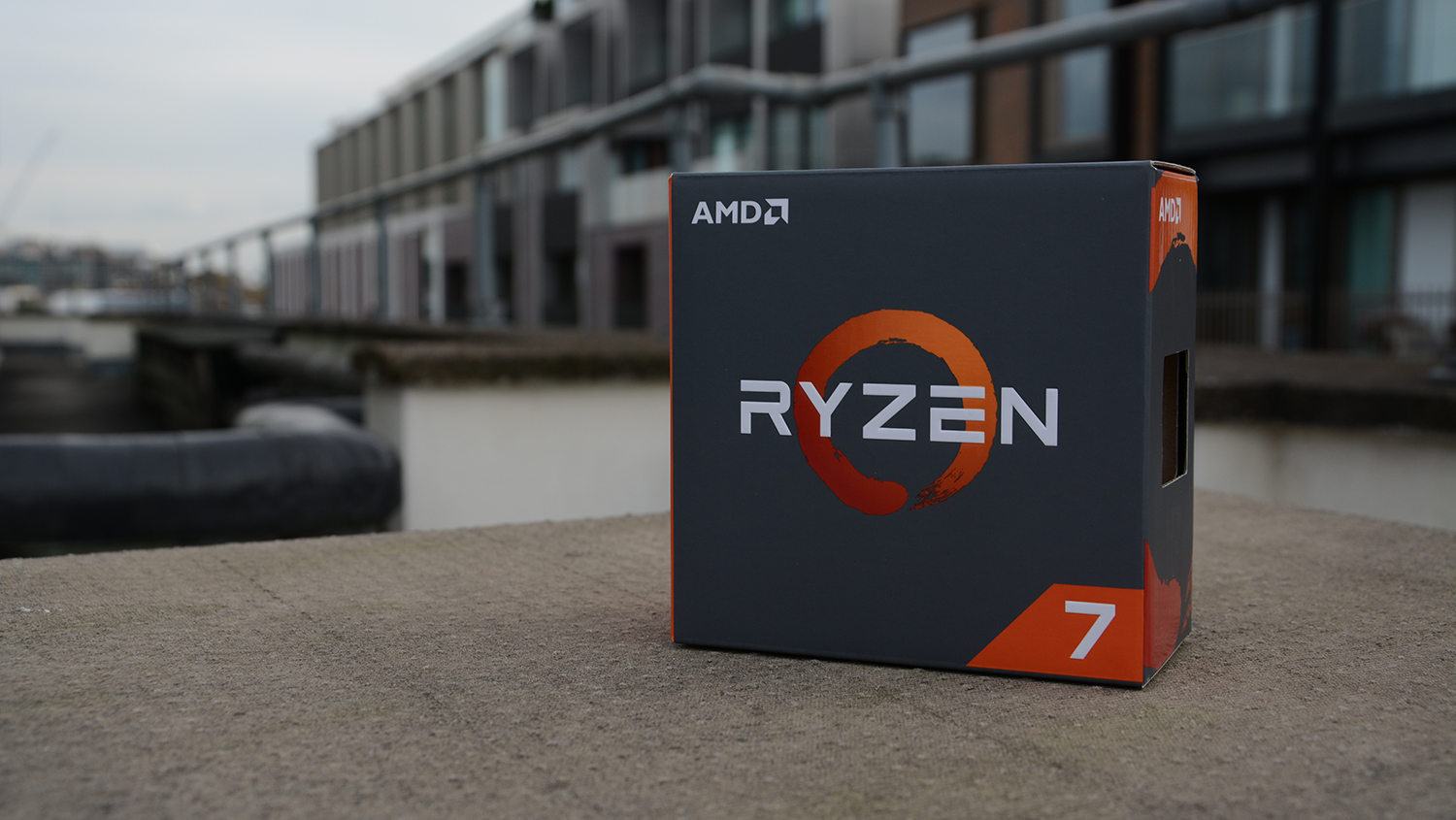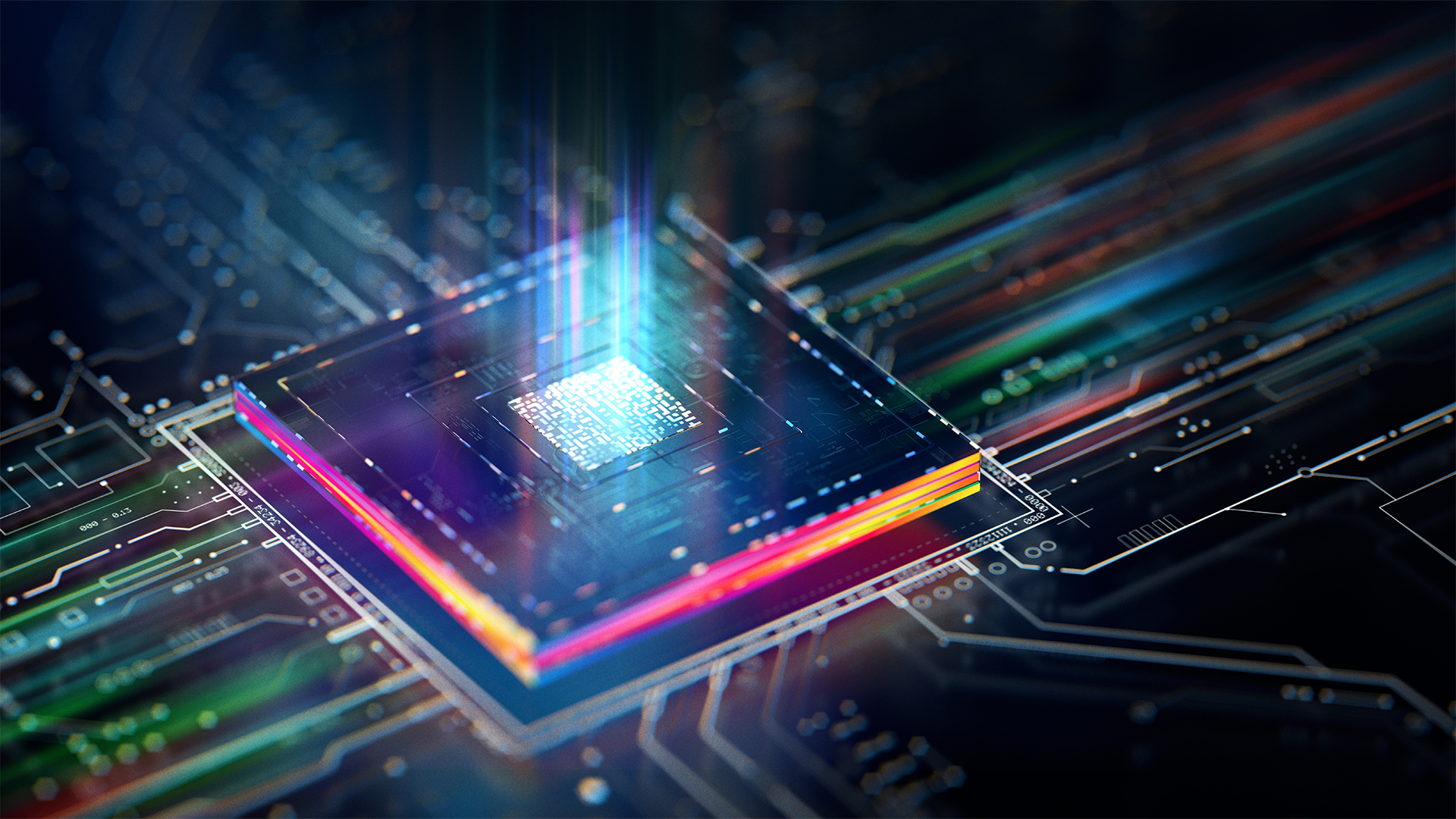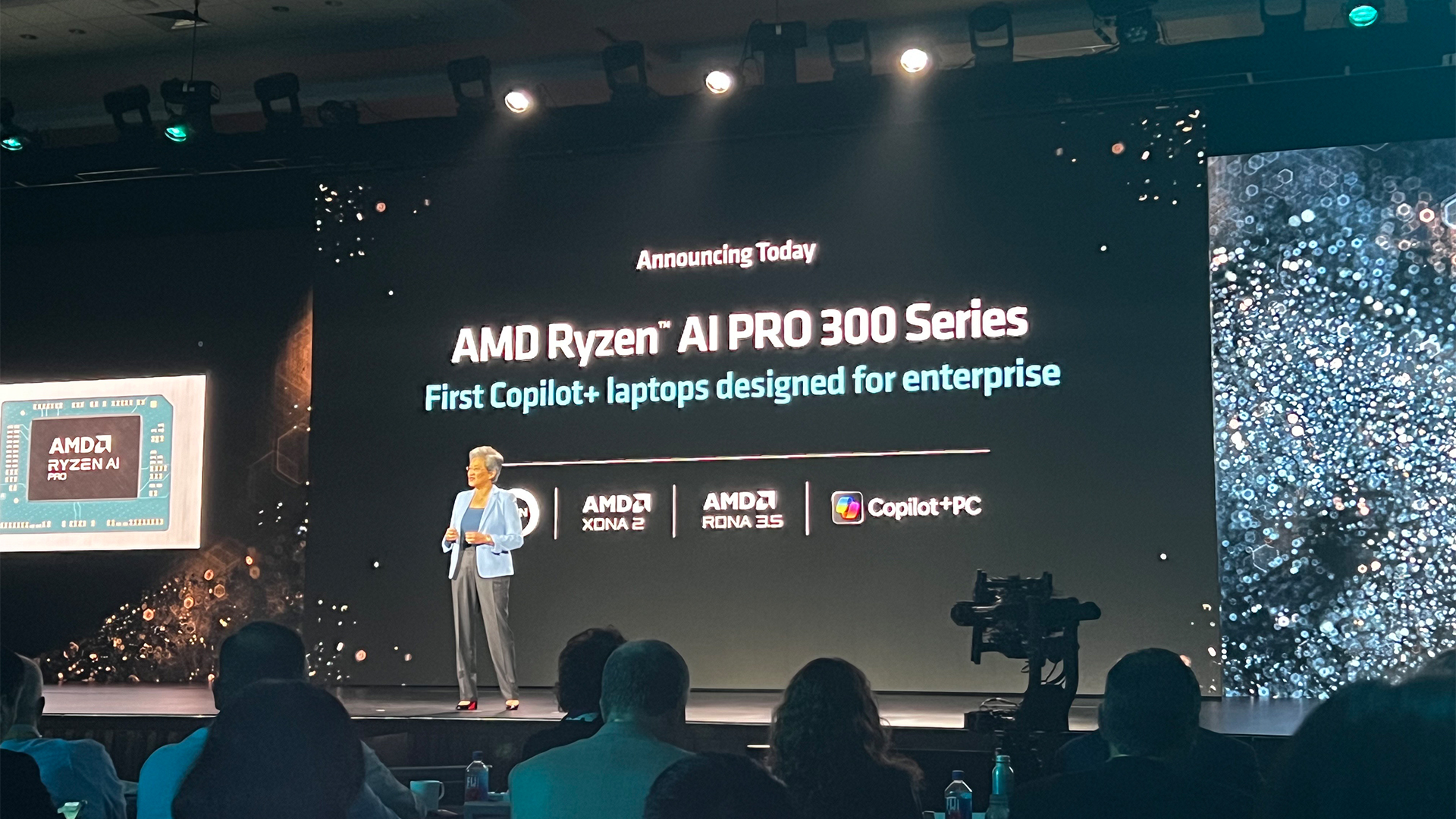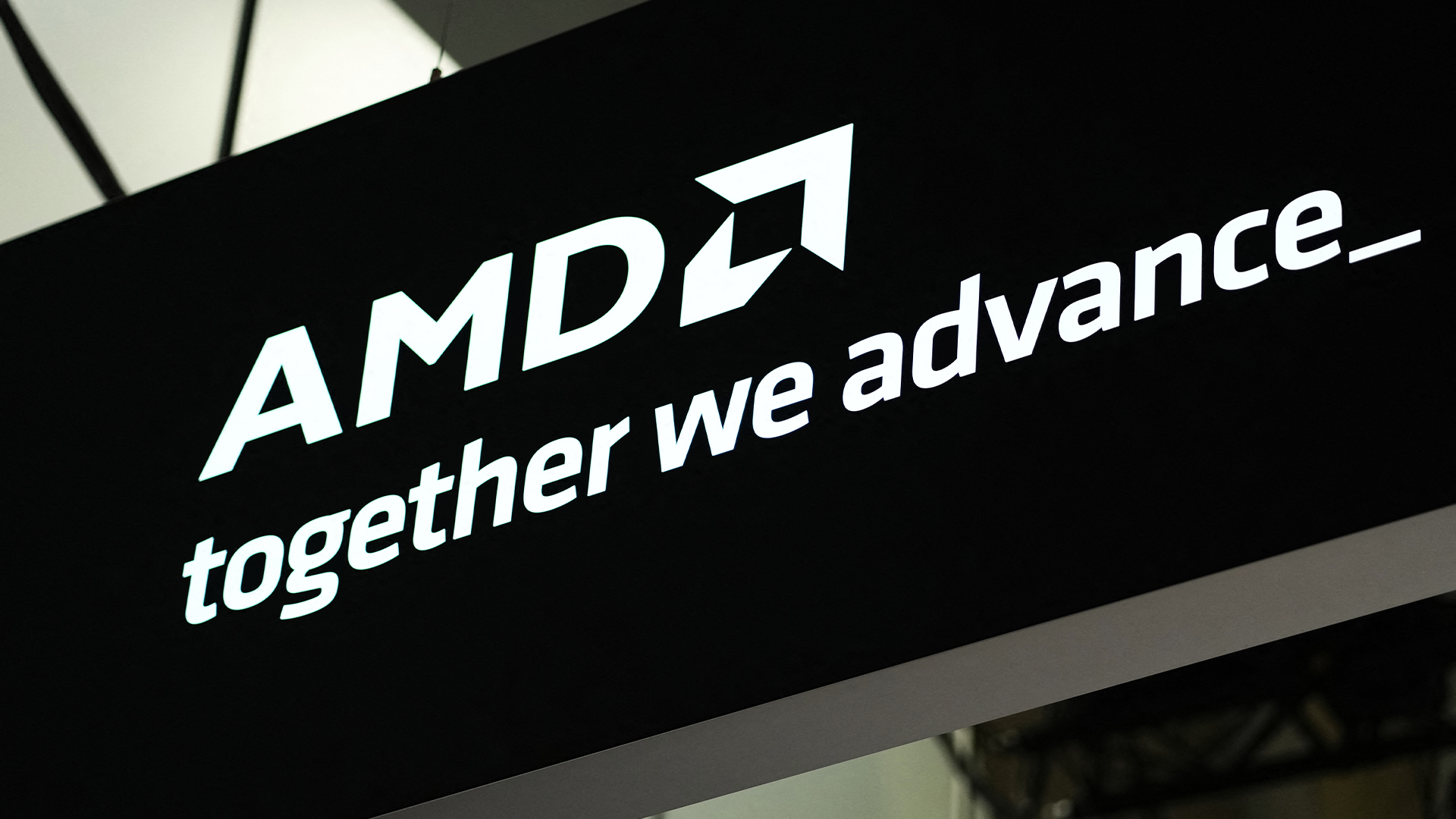AMD Ryzen specs, price and performance: Watch out, Intel
AMD is back with a bang


After spending several years trailing behind Intel, AMD re-asserted its position within the processor market last year with a bang, launching a new series of chips based on its Zen microarchitecture, a ground-up redesign of its processor technology.
The new chips represent a significant improvement over the company's Bulldozer architecture, which was last updated in 2015. The current-gen Zen processors use a 14nm FinFET manufacturing process - the same as Intel's most recent 8th-gen CPUs - and include a number of new features and performance enhancements compared to AMD's previous hardware.
Zen-based processor families
AMD has used its new Zen architecture as the basis for three separate product lines, bridging a number of different processor use-cases. The Ryzen family is designed for standard laptops and desktops, covering entry-level, mid-range and high-end consumer power requirements. These chips use the AM4 socket, support DDR4 memory, and up to eight cores, and are roughly equivalent to Intel's mainstream Core range.
The Ryzen range also includes 'Pro' variants of some chips, which boast the same capabilities, specs, and features as their mainline counterparts, but with improved security and manageability features to make them more suitable for enterprise, similar to Intel's vPro chips.
For high-performance desktop machines, such as gaming rigs and workstations, AMD has released the Ryzen Threadripper, which includes models ranging from eight to 16 cores. This product family features 64 PCIe 3 lanes, quad-channel DDR4 support and uses the TR4 socket.
Finally, the data centre segment is covered by AMD's Epyc line, which uses the SP3 socket. The Epyc platform includes support for both single-socket and dual-socket systems, with each chip supporting a maximum core count of 32, eight memory channels and 128 PCIe 3 lanes.
Ryzen specs, price and clock speed
| Model | Cores/Threads | Clock speed (base/XFR) | TDP | Price (exc VAT) |
| Ryzen 3 1200 | 4/4 | 3.1GHz/3.45GHz | 65W | £66.64 |
| Ryzen 3 1300X | 4/4 | 3.5GHz/3.9GHz | 65W | £82.46 |
| Ryzen 5 1400 | 4/8 | 3.2GHz/3.45GHz | 65W | £96.80 |
| Ryzen 5 1500X | 4/8 | 3.5GHz/3.9GHz | 65W | £107.49 |
| Ryzen 5 1600 | 6/12 | 3.2GHz/3.7GHz | 65W | £124.99 |
| Ryzen 5 1600X | 6/12 | 3.6GHz/4.1GHz | 95W | £134.98 |
| Ryzen 7 1700 | 8/16 | 3GHz/3.75GHz | 65W | £191 |
| Ryzen 7 1700X | 8/16 | 3.4GHz/3.9GHz | 95W | £202.48 |
| Ryzen 7 1800X | 8/16 | 3.6GHz/4.1GHz | 95W | £221.95 |
Ryzen Threadripper specs, price and clock speed
| Model | Cores/Threads | Clock speed (base/XFR) | TDP | Price (exc VAT) |
| Ryzen Threadripper 1900X | 8/16 | 3.8GHz/4.2GHz | 180W | £291.66 |
| Ryzen Threadripper 1920X | 12/24 | 3.5/4.2 | 180W | £494.88 |
| Ryzen Threadripper 1950X | 16/32 | 3.4/4.2 | 180W | £641.64 |
Ryzen mobile specs, price and clock speed
| Model | Cores/Threads | Clock speed (base/boost) | Integrated GPU |
| Ryzen 3 2200U | 2/4 | 2.5GHz/3.4GHz | AMD Vega 3 |
| Ryzen 3 2300U | 4/4 | 2GHz/3.4GHz | AMD Vega 6 |
| Ryzen 5 2500U | 4/8 | 2GHz/3.6GHz | AMD Vega 8 |
| Ryzen 7 2700U | 4/8 | 2.2GHz/3.8GHz | AMD RX Vega 3 10 |
Epyc specs, price and clock speed
| Model | Cores/Threads | Clock speed (base/max) | TDP |
| Epyc 7251 | 8/16 | 2.1GHz/2.9GHz | 120W |
| Epyc 7281 | 16/32 | 2.1GHz/2.7GHz | 155/170W |
| Epyc 7301 | 16/32 | 2.2GHz/2.7GHz | 155/170W |
| Epyc 7351 | 16/32 | 2.4GHz/2.9GHz | 155/170W |
| Epyc 7401 | 24/48 | 2GHz/3GHz | 155/170W |
| Epyc 7451 | 24/48 | 2.3GHz/3.2GHz | 180W |
| Epyc 7501 | 32/64 | 2GHz/3GHz | 155/170W |
| Epyc 7551 | 32/64 | 2GHz/3GHz | 180W |
| Epyc 7601 | 32/64 | 2.2GHz/3.2GHz | 180W |
Ryzen performance
AMD's goal with the Ryzen line was to challenge Intel's dominance with chips that could match their competition for performance while undercutting them on price, and to considerable surprise, they managed to do exactly that. AMD's Zen-based chips have managed to equal (or even beat) the speeds of Intel's processors across the board, making the Rzyen series a formidable value proposition.
ChannelPro Newsletter
Stay up to date with the latest Channel industry news and analysis with our twice-weekly newsletter
The main strength of the Zen architecture is in multi-threaded applications; while the performance of most Ryzen models still lags behind the Intel equivalent in single-core tasks like gaming, multi-core workloads like video editing, rendering and multi-tasking are consistently faster on Zen-based CPUs.
This is partly due to the fact that AMD's newest processors generally offer an increased core count than the Intel equivalent, although they usually have a lower per-core clock speed as well. Combined with the competitive pricing of Ryzen chips, this gives Intel some rather stiff competition.
This is especially true in the laptop market, where multi-tasking performance and cost-effectiveness are the biggest priorities for many manufacturers. We've started to see the first Ryzen-powered notebooks hit the market now, and they really are astonishingly good value when you look at price vs performance. There's a very real chance that AMD could make some serious gains on Intel in this area over the next year or so.
Zen+ & Zen 2
Despite only launching its new architecture last year, AMD has confirmed that the design process for the second generation of the Zen architecture is complete. According to AMD, Zen 2 improves on its predecessor in a number of ways, and will be used to develop new 7nm server chips for its Epyc range. These will reportedly begin sampling to customers in late 2018, and will feature up to 48 cores and support for PCIe 4.0.
The desktop Ryzen chips are getting an upgrade too, but in this case, it's more of a mid-generation revision than a full refresh. Dubbed 'Zen+', the revised architecture will use a 12nm process and is set to power a second generation of Ryzen chips with a performance improvement of around 10%. New Ryzen chips based on the Zen+ architecture will start arriving in April 2018, while Threadripper won't be available until the final half of the year.
Adam Shepherd has been a technology journalist since 2015, covering everything from cloud storage and security, to smartphones and servers. Over the course of his career, he’s seen the spread of 5G, the growing ubiquity of wireless devices, and the start of the connected revolution. He’s also been to more trade shows and technology conferences than he cares to count.
Adam is an avid follower of the latest hardware innovations, and he is never happier than when tinkering with complex network configurations, or exploring a new Linux distro. He was also previously a co-host on the ITPro Podcast, where he was often found ranting about his love of strange gadgets, his disdain for Windows Mobile, and everything in between.
You can find Adam tweeting about enterprise technology (or more often bad jokes) @AdamShepherUK.
-
 Google faces 'first of its kind' class action for search ads overcharging in UK
Google faces 'first of its kind' class action for search ads overcharging in UKNews Google faces a "first of its kind" £5 billion lawsuit in the UK over accusations it has a monopoly in digital advertising that allows it to overcharge customers.
By Nicole Kobie
-
 Neural interfaces promise to make all tech accessible – it’s not that simple
Neural interfaces promise to make all tech accessible – it’s not that simpleColumn Better consideration of ethics and practical implementation are needed if disabled people are to benefit from neural interfaces
By John Loeppky
-
 Why the CPU you chose is the key to Windows 11
Why the CPU you chose is the key to Windows 11The end of Windows 10 is on the horizon – it’s time to upgrade to an fTPM-protected processor
By Bobby Hellard
-
 AMD and Intel’s new x86 advisory group looks to tackle Arm, but will it succeed?
AMD and Intel’s new x86 advisory group looks to tackle Arm, but will it succeed?News The pair will look to make x86 CPU architecture more interoperable
By George Fitzmaurice
-
 AMD’s patient roadmap has become a highway to success
AMD’s patient roadmap has become a highway to successAnalysis While everyone was focused on Nvidia’s meteoric rise, AMD was preparing the hardware needed to take the fight to its long-time competitor
By Ross Kelly
-
 AMD just made a big statement in the AI PC race with its Ryzen AI Pro 300 series processors
AMD just made a big statement in the AI PC race with its Ryzen AI Pro 300 series processorsNews With all eyes focused on the AI PC craze, AMD looks to one-up the competition
By Ross Kelly
-
 AMD’s new Instinct GPUs might just blow Nvidia out of the water
AMD’s new Instinct GPUs might just blow Nvidia out of the waterNews The chip maker unveiled its newest Instinct GPU series in San Francisco today – and it’s very bullish on performance in the race with Nvidia
By Ross Kelly
-
 AMD Advancing AI live: All the news and updates as they happened
AMD Advancing AI live: All the news and updates as they happenedLive Blog ITPro has been live on the ground at the AMD Advancing AI conference in San Francisco this week – here's everything we learned in the big keynote with CEO Lisa Su
By Ross Kelly
-
 Why the world is about to be swamped with AI PCs
Why the world is about to be swamped with AI PCsNews With adoption rates set to surge, AI PCs will become far more mainstream in years to come
By Nicole Kobie
-
 AMD expands CPU portfolio with new EPYC 4004 Series
AMD expands CPU portfolio with new EPYC 4004 SeriesNews AMD has released its new EPYC 4004 Series processors to power entry level system designs and deliver cost savings to SMBs
By Daniel Todd